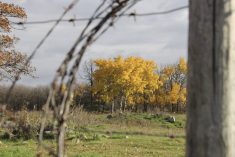Ottawa | Reuters — Canadian helicopters carried out multiple missions on Monday to rescue hundreds of people trapped in their vehicles on a highway after huge rainstorms sparked landslides in British Columbia.
The rainstorms that started on Sunday triggered landslides, shut roads, prompted the evacuation of an entire community, forced an oil pipeline to close and delayed flights.
About 275 people including 50 children were stranded, some 100 vehicles near the mountain town of Agassiz about 120 km east of Vancouver, which prompted evacuation flights.
Video footage showed Canadian Forces Cormorant helicopters ferrying evacuees to safety.
Read Also

U.S. livestock: Feeder cattle hit contract highs on tight supply
Chicago | Reuters – All Chicago Mercantile Exchange feeder cattle futures and most live cattle futures hit contract highs on…
Authorities in Merritt, some 200 km northeast of Vancouver, ordered all 8,000 citizens to leave after rising waters cut off bridges and forced its wastewater treatment plant to close.
“Continued habitation of the community without sanitary services presents risk of mass sewage backup and personal health risk,” the city said in an official notice.
Some areas received eight inches (200 mm) of rain on Sunday — the amount they usually see in a month — and the deluge continued Monday, with roads covered by mud or up to 10 inches of water.
The landslides and floods come less than six months after an out-of-control wildfire gutted an entire town, as temperatures in the province soared.
The storms forced the closure of the Trans Mountain pipeline, which takes crude from Alberta to the West Coast. The line has a capacity of 300,000 barrels per day.
Work on a proposed expansion project has also been halted, the operating company said.
Around 30 km further east, footage posted to Facebook showed parts of a road had been washed away near the town of Hope.
“The situation is dynamic … it is very difficult weather,” provincial public safety minister Mike Farnworth told reporters.
Gales are due to hit the area later, most likely causing power outages, officials said.
The storm is the second weather-related calamity to hit the Pacific province in just a few months. In late June, temperatures hit a record high, prompting blazes that destroyed one town.
— Reporting for Reuters by David Ljunggren.
















